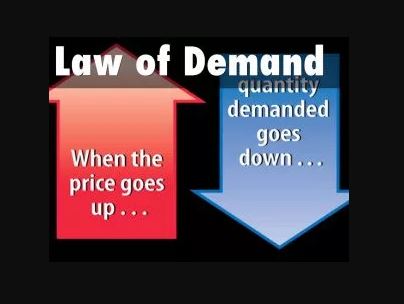Instant gratification refers to the desire for immediate rewards or pleasures without considering the long-term consequences. In the context of financial life, it manifests as impulsive spending or decision-making driven by immediate pleasure rather than prudent, future-oriented planning. This inclination for immediate rewards can have profound effects on one’s financial well-being, impacting savings, investments, and overall financial stability. Understanding the concept is crucial for individuals seeking to cultivate disciplined financial habits and make decisions that align with their long-term goals rather than succumbing to short-term impulses. This exploration delves into the meaning of instant gratification and its far-reaching implications on financial choices and outcomes.
What Drives Instant Gratification?
The drive for instant gratification is rooted in complex psychological factors that influence human behavior. Immediate rewards trigger the brain’s pleasure centers, releasing neurotransmitters like dopamine, creating a sense of satisfaction and happiness. This neurological response reinforces the behavior, fostering a preference for instant rewards over delayed, but potentially more significant, benefits.
Evolutionary psychology suggests that the human brain has evolved to prioritize immediate gains as a survival instinct. In our ancestral past, the ability to secure immediate resources often meant survival. Today, this instinct persists, influencing decisions related to consumption, spending, and overall lifestyle choices. Understanding these psychological drivers is crucial for individuals aiming to manage the impact of instant gratification on their financial lives. By recognizing these impulses and adopting strategies to temper them, individuals can make more deliberate and forward-thinking financial decisions, aligning their choices with long-term goals rather than succumbing to the allure of immediate rewards.
How Does Instant Gratification Manifest Financially?
Instant gratification manifests financially through impulsive spending, hasty decision-making, and a focus on immediate pleasures rather than long-term financial goals. Individuals driven by the desire for immediate rewards often engage in discretionary spending on non-essential items, neglecting savings or investments that contribute to future financial security. This behavior can lead to the accumulation of debt, as credit cards or loans may be used to fulfill immediate desires.
Additionally, instant gratification impacts investment decisions, as individuals may prioritize short-term gains or speculative investments over more stable, long-term strategies. Retirement savings, education funds, and other critical financial goals may take a back seat to the allure of instant pleasures. Budgetary discipline is often compromised, with individuals overspending on entertainment, dining, or luxury items. This continual focus on immediate consumption can hinder the ability to build an emergency fund or make substantial contributions to retirement accounts.
Understanding the Impact on Savings, Investments, and Financial Stability
Instant gratification significantly impacts savings, investments, and overall financial stability, creating a ripple effect that can hinder long-term prosperity. One of the primary consequences is the erosion of savings discipline. Individuals driven by the need for immediate rewards may struggle to allocate funds to savings accounts or emergency funds, leaving them vulnerable to unexpected financial challenges.
Investments, crucial for wealth accumulation, are often affected as well. The impulsive desire for quick gains may lead to risky investment decisions or frequent trading, compromising the potential for sustained, compounded growth. Long-term investment strategies, essential for achieving financial goals like retirement or homeownership, may be sacrificed in favor of short-term, speculative choices.
Financial stability takes a hit as instant gratification can contribute to the accumulation of high-interest debt. Credit cards may be used impulsively to fund immediate desires, resulting in a cycle of debt that can be challenging to break.
Can Instant Gratification Derail Financial Goals?
Yes, instant gratification can significantly derail financial goals by diverting individuals from disciplined, long-term financial planning. The impulsive pursuit of immediate rewards often leads to a series of financial decisions that run counter to overarching objectives. Savings goals, such as building an emergency fund or saving for a down payment, may be compromised as funds are diverted to satisfy immediate desires.
Investment strategies essential for achieving financial milestones can be undermined as well. Instead of adhering to a well-structured, long-term investment plan, individuals may be enticed by speculative, short-term opportunities that promise quick returns. This deviation can hinder the growth potential of investments over time, impacting retirement savings and other crucial financial objectives. Credit card usage to fund immediate pleasures without considering the long-term consequences may lead to a cycle of debt that becomes an obstacle to achieving broader financial goals.
How to Recognize and Combat Instant Gratification?
Recognizing and combating instant gratification is essential for fostering financial discipline and achieving long-term goals.
- Awareness and Self-Reflection: Acknowledge impulsive tendencies by reflecting on spending patterns. Identifying triggers and understanding the emotional aspect of decision-making is crucial.
- Establish Clear Financial Goals: Define specific, measurable, and time-bound financial objectives. Having a clear roadmap helps prioritize long-term goals over fleeting desires.
- Create a Budget: Develop a realistic budget that allocates funds to savings, investments, and necessary expenses. A well-structured budget serves as a guide, curbing impulsive spending.
- Emergency Fund: Build a robust emergency fund to handle unexpected expenses. Knowing there’s a financial safety net reduces the temptation to divert funds for immediate pleasures.
- Delayed Gratification Techniques: Practice delaying immediate rewards. Introduce waiting periods before making significant purchases, allowing time for rational decision-making.
- Use Financial Apps and Tools: Leverage technology to track spending, set savings goals, and receive alerts. Financial apps can provide real-time insights into financial habits, fostering accountability.
- Enlist an Accountability Partner: Share financial goals with a friend, family member, or financial advisor. Having someone to provide encouragement and accountability can reinforce disciplined financial behavior.
- Education and Resources: Educate yourself on the principles of financial planning. Understanding the long-term benefits of delayed gratification can motivate disciplined financial habits.
The Road to Financial Well-Being: Overcoming Instant Gratification
The road to financial well-being involves a deliberate effort to overcome the allure of instant gratification and prioritize long-term financial stability.
- Cultivate Patience: Embrace the value of delayed gratification. Recognize that achieving meaningful financial goals often requires time and discipline.
- Set Clear Priorities: Establish and prioritize clear financial goals. Whether saving for an emergency fund, retirement, or other objectives, having defined priorities can guide decision-making.
- Build Financial Literacy: Educate yourself on financial principles and investments. Understanding the long-term implications of financial decisions can empower you to make informed choices.
- Create a Realistic Budget: Develop a budget that aligns with your financial goals. Allocate funds for savings and investments while allowing for occasional indulgences to avoid feeling deprived.
- Automate Savings: Set up automated transfers to savings or investment accounts. This ensures consistent contributions, reducing the temptation to divert funds for immediate pleasures.
Conclusion
In conclusion, overcoming instant gratification is pivotal on the journey to financial well-being. By cultivating patience, setting clear priorities, and embracing financial literacy, individuals can navigate the challenges of impulsive decision-making. Establishing realistic budgets, automating savings, and seeking professional guidance further fortify financial discipline. The road to financial well-being involves a mindful balance between enjoying the present and securing the future. With strategic planning and a commitment to long-term goals, individuals can break free from the shackles of immediate pleasures, paving the way for sustained financial success and a more secure financial future.
Also Read:
- Fixed Deposits vs Money Market Funds ; Which One is Right for You?
- International Mutual Funds in India- Should you Invest?
- Should you Invest in retirement savings fund?
- Potential Risk Matrix in Debt Mutual funds- How to Interpret?

Hello, I am Tanisha Kriplani, graduated in computer science from Delhi University. I am passionate about web content writing and have a strong interest in Data Analytics and Data Engineering.












